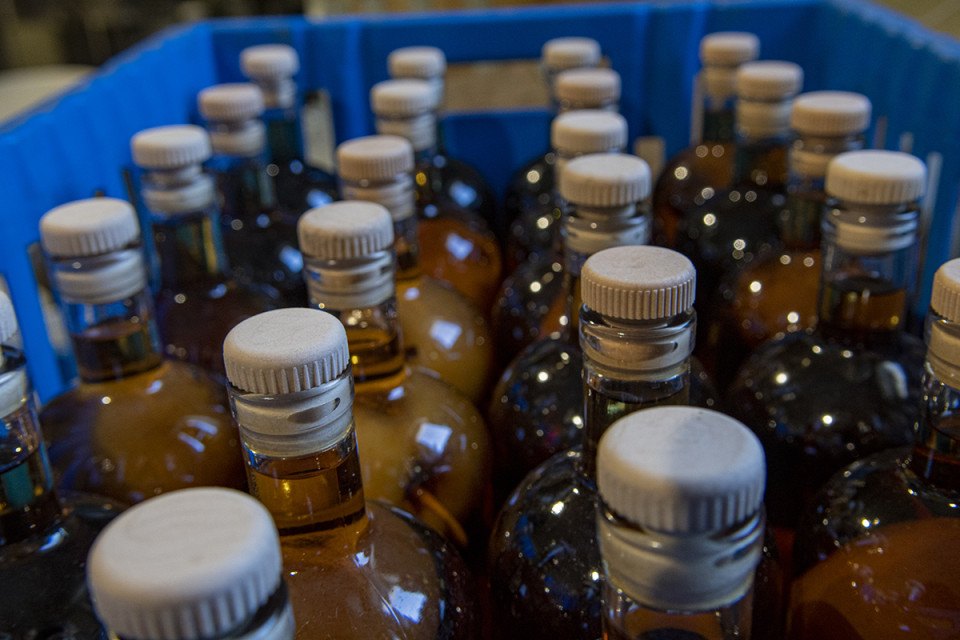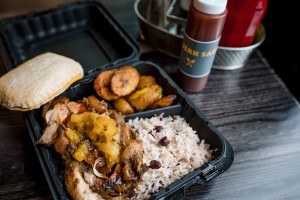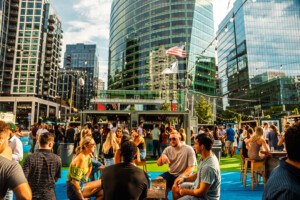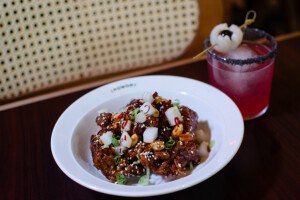Boston Hospitality Lawyer Fired after Falsifying Liquor License to Allston/Brighton Food Hall
Former liquor board secretary Lesley Delaney Hawkins terminated after providing a "made-up" license number.

Photo via Getty Images
A former Boston liquor board boss who long held top roles in city government as the executive secretary for the Boston Licensing Board and as general counsel for the Cannabis Board was fired from the prestigious white-shoe law firm Prince Lobel Tye LLP after she was caught delivering a bogus liquor license to a client.
Lesley Delaney Hawkins was “terminated,” according to one of the firm’s partners, Thomas Elcock, after she sent a doctored liquor license with a fake number in the name of her client, Craft Food Halls, which was opening a tenth location in Allston/Brighton. “The firm recently had learned that one of our partners had allegedly falsified documents in connection with a liquor licensing process in Boston,” Elcock said. “We were contacted by the client when he discovered that the liquor license was not valid and had not been obtained through the Alcoholic Beverages Control Commissions licensing process. After an internal investigation, we terminated the partner immediately.”
Hawkins’ client, Craft Food Halls restaurant group owner Gardy Desrouleaux, was a “victim” in the scheme, Elcock said. Desrouleaux declined Boston’s request for comment.
“As soon as the City was made aware of these disturbing allegations, the invalid license was seized,” a spokesperson for Mayor Michelle Wu’s office said. “The City is grateful to those who swiftly raised these concerning actions.”
Desrouleaux and his partners, who operate many Craft Food Halls across the state, were set to open their newest location at 1234 Soldiers Field Road in Allston/Brighton. They applied for a liquor license that had been issued to the previous tenant, Casa Cana, and hired Hawkins to navigate the complicated process of transferring the license—which would cost them $500,000 and requires approval from city and state alcohol authorities.
As required by city law, a notice of Craft Food Halls plans was published in local newspapers in January, and the restaurant’s abutters were notified. Less than two weeks later, the city of Boston’s Licensing Board approved the transfer application and sent it to the Alcoholic Beverages Control Commission (ABCC) for final approval. That’s where the license hit a snag. The paperwork submitted by Hawkins was in the hands of ABCC investigators, which created a delay in the approval of Craft Food Halls liquor license, one law enforcement source told Boston, which was confirmed by a second source connected to the case.
Still, despite that investigation, Hawkins emailed a fraudulent liquor license to Desrouleaux, who—unaware that the fake serial number on his half-million-dollar license would raise alarms—framed it and hung on the wall before the venue opened in March to great fanfare.
When Craft Food Halls attempted to purchase alcohol from a liquor wholesaler, the wholesaler contacted the ABCC to confirm the business had a license for the Allston/Brighton location, yet when the wholesaler tried to attach the liquor license number to the sale, a legal number could not be located. The ABCC contacted Boston’s Licensing Board, which sent a Boston Police sergeant who is assigned to the Licensed Premises Unit to the Soldiers Field Road location. The sergeant, two sources confirm, examined the liquor license on the wall and noted that the serial number was not part of the dozens of sequences he was familiar with as a full-time licensed premises investigator. In other words, “it was a made-up number,” a source investigating the case said. The sergeant took the license off the wall, shuttering Craft Food Halls two weeks after it had opened.
After Prince Lobel terminated Hawkins, the law firm assigned other lawyers to get the eatery’s liquor license in order, Elcock said, and returned any legal fees the client had already paid. It does not appear any additional monies exchanged hands. “We have been working with the client cooperatively,” Elcock said. “The firm considers this an extremely serious matter. We are doing anything we can to help the client and rectify any issue caused by the former partner’s actions.”
When Hawkins was confronted by the law firm, she blamed a law clerk for the faked license, a source at Prince Lobel said. Elcock categorically denies that anyone other than Hawkins acted inappropriately. “Our investigation showed no other Prince Lobel lawyer or employee was involved” he said. Sources say that metadata lifted by the firm from the former partner’s computer suggest she acted alone.
Prince Lobel hired Hawkins as a partner specializing in real estate in September 2021, bringing what the firm called at the time in a press release, “nearly ten years of experience in licensing, permitting, and zoning law with a concentration on cannabis and alcoholic beverage licensing and commercial and residential development.”
Hawkins could not be reached for comment. Her bio has been scrubbed from Prince Lobel’s website. A cell phone number located for Hawkins was disconnected. She did not respond to a message sent to her LinkedIn page.
Attaining a liquor license in Boston is a notoriously cumbersome and expensive process, one that has been mired in political scandal in the past. In 2008, former State Senator Dianne Wilkerson was arrested on charges that she took $23,500 in bribes to help a businessman pal obtain a liquor license, including cash that she stuffed into her bra during a meeting at a Boston restaurant that was secretly videotaped by an undercover FBI agent. She pleaded guilty to eight counts of attempted extortion and was sentenced to 3 ½ years in federal prison.
It is unclear if criminal charges will be filed against Hawkins, but a Boston Police investigation into her actions remains open and active, the sources say.
This post has been updated to include a statement from Mayor Michelle Wu’s office.


